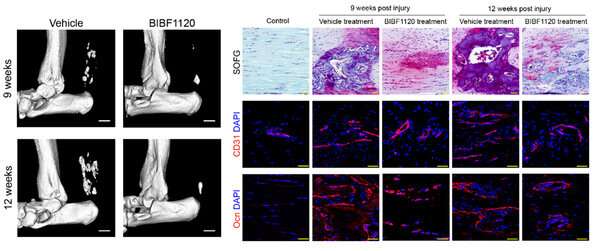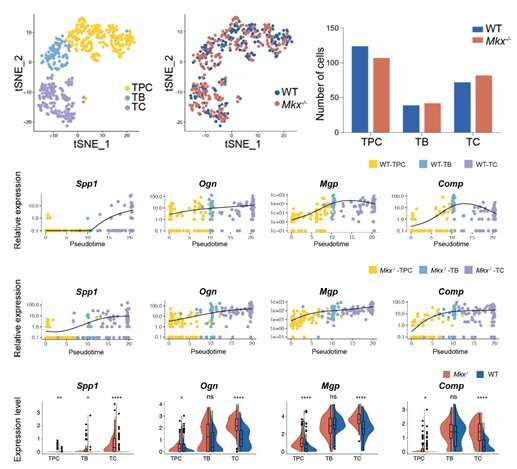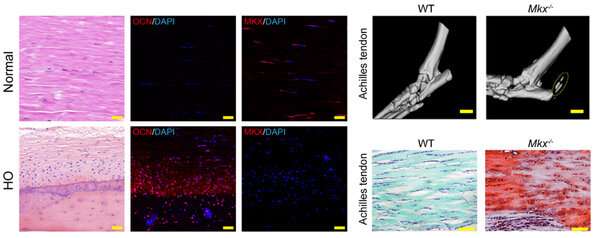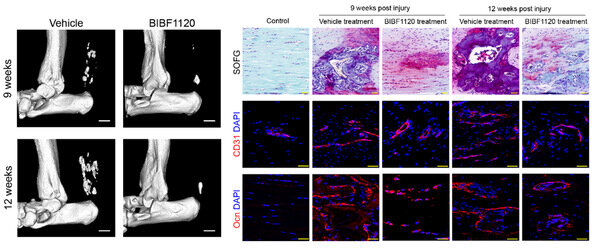
In the human body, there is a soft spot—the Achilles tendon. As its name suggests, the Achilles tendon is one of the most powerful and fragile tendons in the body. The Achilles tendon can endure a load close to 8 times the body weight during exercise, making it extremely vulnerable to injury. Furthermore, due to the unique nature of tendons, failing to consult a doctor soon after an injury can lead to chronic tendon disease, which is characterized by pain, swelling, and movement problems. Tendo heterotopic ossification (HO) is a special type of chronic tendon disease, that is, the bone grows in soft tissue (tendon) where it normally doesn’t exist, further destroying the morphological structure and function of the tendon tissue. Famous athletes such as Liu Xiang and Kobe Bryant had to retire early from sports due to a lack of a radical solution for Achilles tendon injuries.
Using single-cell sequencing technology, Prof. Ouyang Hongwei from the ZJU_UoE Institute led his team to reveal that tissue microenvironment changes during tendon heterotopic ossification alters gene expression and cell fate determination of tendon stem progenitor cells, demonstrating that this process can be blocked by small molecule inhibitor BIBF1120. These findings were published in Bone Research, providing a novel treatment for tendon heterotopic ossification.
The researchers firstly found that the tendon specific transcription factor MKX decreased significantly in heterotopic ossified human tendon, and knockout of MKX led to spontaneous ossification of mouse tendon, suggesting that MKX plays a critical role in heterotopic ossification of tendon.
Further studies revealed that MKX knockout mouse tendon cells expressed high levels of angiogenesis related genes, resulting in vascular invasion and tendon extracellular matrix microenvironment remodeling, and abnormal activation of osteogenic and chondrogenic differentiation related genes in tendon stem progenitor cells. These data indicated that inhibition of angiogenesis may improve the tendon tissue microenvironment and prevent HO progression.


Source: Read Full Article
